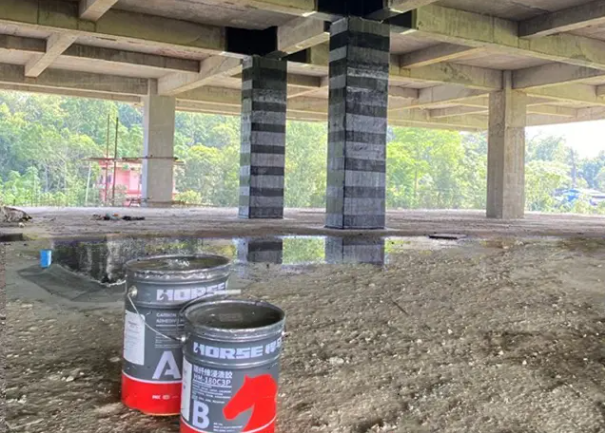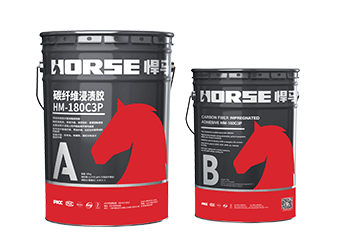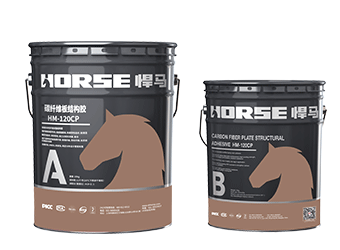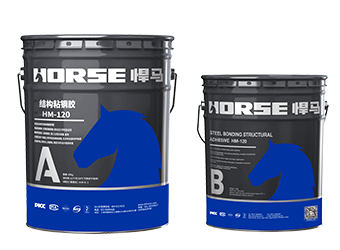Solutions
Horse Construction offers full range of structural strengthening materials with technical supports, documentation supports, products supports, project supports.
Allergic While Working With Structural Adhesives?

What we mainly talk about today is, what should I do if I have allergies when using structural adhesives? Before answering this question, let's first understand why allergies occur.
Why are allergies
From a medical point of view, allergies mainly refer to abnormal phenomena such as redness, itching, peeling and allergic dermatitis when the skin is subjected to various stimuli such as chemicals, pollen, certain foods, polluted air, etc.
In reinforcement projects, epoxy resin adhesives are often used by workers. The epoxy resin itself is non-toxic, but some low-quality adhesives can still cause severe allergies, often making workers crazy. The root cause of adhesive allergies is the "hidden" harmful substances in them. Such as volatile organic compounds, benzene, toluene, xylene, etc.
These harmful substances usually have an aromatic smell, but they are highly toxic to the human body. Both inhalation and absorption through the skin can lead to poisoning, causing dizziness, headache, fatigue, and long-term exposure will cause significant harm to the body.
Especially in the hot and dry summer, the pores on the human skin tend to become larger. If the skin is in direct contact with materials such as adhesives, the harmful substances volatilized in the adhesives can easily penetrate into the skin along the open pores. In this way, people with allergies are very prone to allergic contact dermatitis.
Another situation is that during the process of mixing and mixing the glue, the workers will be attached to the glue bucket to observe at a close distance. During the reaction of the components A and B of the structural glue, the volatile gas will come towards them, causing allergies.
How to deal with allergies
1. Keep away from sources of exposure. If the glue sticks to the skin, rinse it off with water. However, if splashed into the eyes, immediately wash with plenty of clean water and seek medical attention as soon as possible. People's constitutions are different. Some people with sensitive skin may have serious reactions to allergens, while others may just feel itchy skin. But no matter what the constitution is, once an allergy occurs, the patient must be kept out of contact with the allergen as soon as possible to prevent further aggravation of the allergic reaction.
2. Seek medical attention in time. If the symptoms are very serious, you can go to the hospital to go to the hospital for infusion, use anti-allergic medicine infusion, plus some oral medicine box to rub the medicine, so you can get better quickly. Infusion can use ranitidine, calcium gluconate, vitamin c, etc. Oral can use chlorpheniramine, cetirizin, etc., plus anti-infective anti-inflammatory drugs. For external use, 15% boric acid solution can be applied externally, half an hour each time, twice a day, and then apply an allergy-relieving ointment after application. Also, if the patient's body is currently in a state of high allergies, don't touch it, including washing powder and soap, preferably not even water.
3. Site cleaning. Clean and ventilate the construction site in a timely manner, and check other workers who are working at the same time to prevent the expansion of allergy and reduce possible losses.
how to avoid allergies
1. Screen workers. People's constitutions are different, some people have allergies, some people are not. The same thing that is an allergen to some people and not to others. The correct selection of the right workers to engage in the right type of work is not only responsible for the workers' life, health and health, but also a reasonable avoidance of construction risks.
2. Take precautions. It is not only necessary to ensure the ventilation and cleanliness of the construction site during the construction process, not to let the cement dust fly, paint, structural adhesive, etc. on the workers, but also to ensure that the workers' dormitories are cleaned in time and kept clean. And all workers are strictly required to wear helmets, masks, gloves, goggles and other labor protection supplies neatly during construction.
3. Select a qualified adhesive. As mentioned earlier, epoxy resin itself is non-toxic, but some bad manufacturers will add some inferior fillers to the curing agent to ensure short-term reinforcement strength. Therefore, when purchasing, be sure to choose non-toxic adhesives that have been identified by national testing agencies.
The mission of Shanghai Horse is to save lives and buildings, while also taking care of the physical and mental health of workers. During production, Hummer strictly follows the national testing standards. All adhesives have passed the non-toxic testing and identification, and also passed the ethylenediamine-free testing and the mouse test to ensure the structural safety and personal safety of the reinforcement project.
You can find anything here you are in need of, have a trust trying on these products, you will find the big difference after that.

Good impregnation carbon fiber adhesive for applying carbon fiber reinforced polymer(CFRP) wrap for structural strengthening

High strength carbon fiber reinforced polymer plate adhesive for applying CFRP laminate/strip/plate on the structural members

Two-component epoxy modified epoxy structural strengthening adhesive for bonded steel plate to concrete